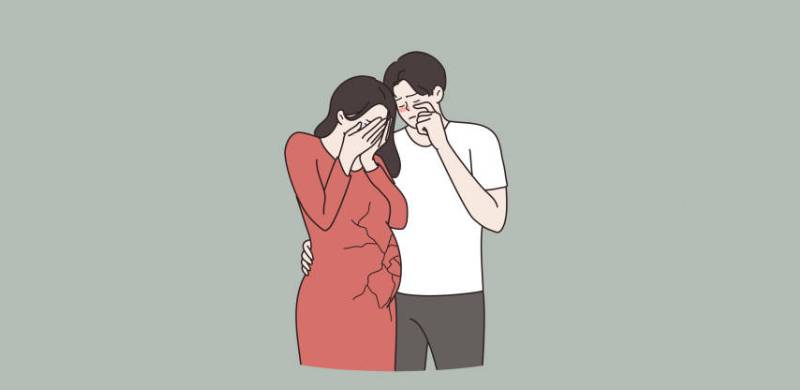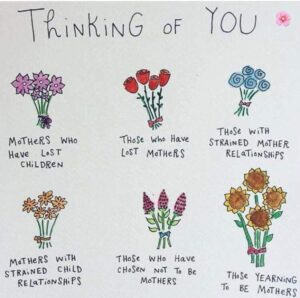
Pakistani's love jumping to conclusions so much that it could rightly be declared our national sport. If something goes against our normal frame of reference, we immediately jump to the worst possible conclusion. While we see this frequently in politics, this is especially true for the personal realm, where we, as a people, love to dissect, analyse, theorise, critique and police something that we should have no say in: other people's lives. The brunt of this dissection and critique is borne by women, of course, as in this society, women carry the burden of the nation's 'honour' on their shoulders.
If a woman chooses to seek divorce, she is vilified. If she chooses to marry someone she wants, she is shamed. If she chooses to not have children she is considered a renegade who is going back on the first promise a woman made: to be the vessel of procreation. Because the thought of a woman being anything other than a wife, a mother or a daughter is beyond our scope of imagination. The minute a woman decides to recenter the frame of reference so that she is no longer being defined by her relation to the men in her life, society begins to lose its mind.

We saw this most recently with Nadia Afgan, who not even a week ago was forced to post a lengthy statement on her Instagram account about her choice to not have children. Imagine having to defend your own personal, deeply private life choices. Simply because they aren't in line with what society has deemed the ideal to be. Of course, the matter gets complicated even further when you consider the extent to which religion and culture have been conflated in our society.
Nadia's statement followed her appearance on actor Ahsan Khan's show Time Out With Ahsan Khan, where she and fellow guest actor Omair Rana chatted about children. Nadia revealed that although she and her partner have been married for 15 years, they do not have a child together, adding that she appreciates the bravery of Rana, Khan and everyone who chose to have kids, but she herself is paranoid about the responsibility of raising children. When Ahsan Khan asked her if this was by choice, she said yes.
Her statement was subsequently picked up by celebrity gossip and update pages, and shared extensively on Facebook and Instagram, where people had a lot to say. There were many religiously moved comments that talked about the 'natural order' of things, like the ones pictured below.




Just accept it. One of those pesky 'easier said than done moments', as Nadia was forced to detail. In a lengthy Instagram post, she said that years ago she had decided that she would never speak about her decision to not have children, but the backlash she was getting from women over her earlier statements had made her reconsider.
"I was a firm believer that all women, whether they have children or not, would know and understand how private a matter this is," she said, adding, "I have always believed that all women understand how painful this journey can be, but the past few days have made me see how wrong I’ve been."
She said that she and her husband Jawad —or Jodi, as she calls him, have been married for 15 years, and despite wanting children, were unable to conceive any. Afgan says she had two miscarriages and three unsuccessful Intrauterine insemination (IUI) attempts, which resulted in her having to battle depression, panic attacks and hormone induced weight gain.
"We were all set for an IVF. But I just couldn’t go ahead with it. I just couldn’t bear the agony of that single line on the pregnancy test," she said, adding that her husband had been supportive throughout, but the women in her life, both strangers and friends had showed her no empathy, and after Saturday she had been forced to relive the trauma of years past. The heartbreaking caption concludes by saying that her conviction that women are a clan and tribe that sticks together and stands up for each other has been broken.

The question here isn't about whether people should or should not have children. It's not even about respecting women's choices (although that is a huge aspect of it). The more pertinent question, that might just be responsible for the polarized society we find ourselves in, is why can't we tolerate differences of opinions? Be it political or private, why must we bring down anyone who dares to be slightly different, who has the courage to break free of the moulds of tradition, who has the guts to authentically be themselves?
Of course this policing is more commonly reserved for women, who are not awarded the same leniency that men are by our society. The 'weaker' sex is deliberately kept weak, prevented from finding her own footing and reclaiming her own agency under normal circumstances, but when she dares to think outside the box, the retaliation intensifies. We see this in TV dramas, in our parliaments, and in our lives. No woman is exempt.
Someone else's way of living has virtually no bearing on our lives. The choices they make on how to dress, where to live, who to marry, how much or how little to eat, to have kids or to not have kids, all remain their own choices that do not affect the lives of anybody else, at all. It's about time we learnt this lesson for good.
If a woman chooses to seek divorce, she is vilified. If she chooses to marry someone she wants, she is shamed. If she chooses to not have children she is considered a renegade who is going back on the first promise a woman made: to be the vessel of procreation. Because the thought of a woman being anything other than a wife, a mother or a daughter is beyond our scope of imagination. The minute a woman decides to recenter the frame of reference so that she is no longer being defined by her relation to the men in her life, society begins to lose its mind.

We saw this most recently with Nadia Afgan, who not even a week ago was forced to post a lengthy statement on her Instagram account about her choice to not have children. Imagine having to defend your own personal, deeply private life choices. Simply because they aren't in line with what society has deemed the ideal to be. Of course, the matter gets complicated even further when you consider the extent to which religion and culture have been conflated in our society.
Nadia's statement followed her appearance on actor Ahsan Khan's show Time Out With Ahsan Khan, where she and fellow guest actor Omair Rana chatted about children. Nadia revealed that although she and her partner have been married for 15 years, they do not have a child together, adding that she appreciates the bravery of Rana, Khan and everyone who chose to have kids, but she herself is paranoid about the responsibility of raising children. When Ahsan Khan asked her if this was by choice, she said yes.
Her statement was subsequently picked up by celebrity gossip and update pages, and shared extensively on Facebook and Instagram, where people had a lot to say. There were many religiously moved comments that talked about the 'natural order' of things, like the ones pictured below.




Just accept it. One of those pesky 'easier said than done moments', as Nadia was forced to detail. In a lengthy Instagram post, she said that years ago she had decided that she would never speak about her decision to not have children, but the backlash she was getting from women over her earlier statements had made her reconsider.
"I was a firm believer that all women, whether they have children or not, would know and understand how private a matter this is," she said, adding, "I have always believed that all women understand how painful this journey can be, but the past few days have made me see how wrong I’ve been."
She said that she and her husband Jawad —or Jodi, as she calls him, have been married for 15 years, and despite wanting children, were unable to conceive any. Afgan says she had two miscarriages and three unsuccessful Intrauterine insemination (IUI) attempts, which resulted in her having to battle depression, panic attacks and hormone induced weight gain.
View this post on Instagram
"We were all set for an IVF. But I just couldn’t go ahead with it. I just couldn’t bear the agony of that single line on the pregnancy test," she said, adding that her husband had been supportive throughout, but the women in her life, both strangers and friends had showed her no empathy, and after Saturday she had been forced to relive the trauma of years past. The heartbreaking caption concludes by saying that her conviction that women are a clan and tribe that sticks together and stands up for each other has been broken.

The question here isn't about whether people should or should not have children. It's not even about respecting women's choices (although that is a huge aspect of it). The more pertinent question, that might just be responsible for the polarized society we find ourselves in, is why can't we tolerate differences of opinions? Be it political or private, why must we bring down anyone who dares to be slightly different, who has the courage to break free of the moulds of tradition, who has the guts to authentically be themselves?
Of course this policing is more commonly reserved for women, who are not awarded the same leniency that men are by our society. The 'weaker' sex is deliberately kept weak, prevented from finding her own footing and reclaiming her own agency under normal circumstances, but when she dares to think outside the box, the retaliation intensifies. We see this in TV dramas, in our parliaments, and in our lives. No woman is exempt.
Someone else's way of living has virtually no bearing on our lives. The choices they make on how to dress, where to live, who to marry, how much or how little to eat, to have kids or to not have kids, all remain their own choices that do not affect the lives of anybody else, at all. It's about time we learnt this lesson for good.

